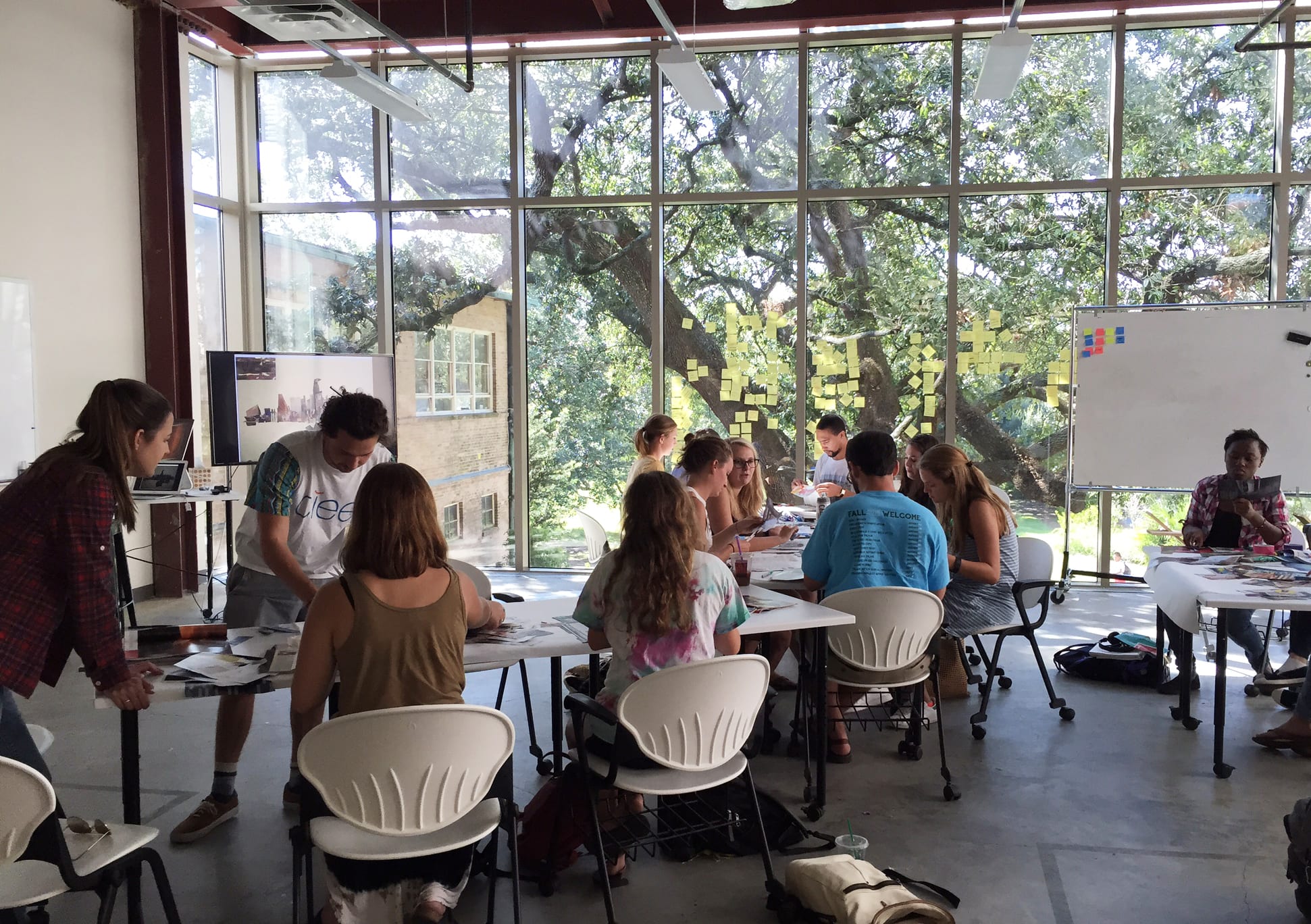Building upon Tulane University’s strengths in civic engagement and service learning, the Social Innovation and Social Entrepreneurship (SISE) minor provides students with skills to create a more just and equitable society. The five main SISE courses introduce students to concepts of social innovation, mindsets of human-centered design, and frameworks for social impact leadership.
Students in the minor develop an understanding of complex problems and engage in systems change thinking while developing a toolkit to create positive social and environmental change.
REQUIRED SISE COURSES
Professors: Faughnan, Monhartova, Otten
SISE 2010 is an introductory class that gives students an appreciation for the field of social innovation and social entrepreneurship (SISE). We look to inspire and educate students about the core tenets of SISE. We examine key concepts including: social mission, social innovation, social entrepreneurship, and social value, and consider the historical perspective of the field to inform our current understanding of the evolution of solving social and environmental problems. The class introduces students to the concepts, strategies, and approaches of social change. We consider the necessary skills required of social entrepreneurs and others working to make change in communities around the world. Further, we look at cases of social entrepreneurs, intrapreneurs, innovators, and visionaries who are coming up with novel methods to address a variety of social issues while utilizing different organizational forms and operating in international, domestic, and local contexts.
Professors: Monhartova
This course highlights the importance of understanding business planning and economic concepts for social entrepreneurial organizations. The course will assess different business models for social impact organizations and how these organizations integrate their social mission with their business strategies. Business planning is essential for any organization, whether it is a business, a social entrepreneurial organization, a government agency, etc. Students will consider the necessary business skills required of social entrepreneurs and others working to make systemic, sustainable change in communities around the world.
Professors: Schiller
This course offers a practical, experience-based introduction to design-thinking (DT) tools and techniques and to explore the role of DT in social innovation. Specific problems will be identified and possible solutions framed through close collaboration in teams in studio, fieldwork and individual assignments. The iterative and emergent nature of the DT process is a key component of this course. Through engagement in this process, students will build DT core competencies: creative and visual thinking skills, empathy, and the ability to work collaboratively. Students will also be asked to reflect on their own creative processes, existing knowledge, priorities, and perceptions. It is important to note that the instructors see “design thinking” and current tools as only one of many approaches to solving complex social and environmental problems. Students are expected to learn and use the DT process, as well as offer critique.
Professors: Barksdale
The purpose of this course is to develop the next generation of leaders for our country and the world. The study of leadership begins with a conceptual understanding of the genealogies and evolution of leadership theory. It follows with students gaining practical knowledge about change management and different leadership styles and characteristics through case studies and personal interactions with proven leaders. The course also creates an opportunity for students to assess and demonstrate their leadership capabilities and to develop a personal leadership plan for the future.
Co-requisite: SISE 4050
View an up to date list of SISE-approved electives.
SISE offers some upper-level courses that fulfill 2nd tier service learning requirements. View the SISE approved elective page for more information. One of our suggested electives, SISE 4560, fulfills Tulane’s 2nd tier service-learning requirement through an intensive internship experience with a community partner. Visit the CPS website for internship opportunities.
Spring 2017 Professor: Barksdale, Faughnan
Co-requisite: SISE-approved elective
The senior seminar provides a forum for seniors in the social innovation and social entrepreneurship minor (SISE) to synthesize their undergraduate work in this area of study. Students will critically reflect on and consolidate their knowledge and understanding of the SISE field. Through critical discussion around specific themes relevant to SISE, seminar participants will forge a deeper understanding of SISE as an approach to addressing social problems, its potential, and the nature of its critiques. A primary goal of the SISE minor is to help students embody the design thinking skills of empathy, listening, and humility and collaboration, with a focus on social impact (rather than profit or self-promotion). To that end, the class sessions offer a forum for engaging in meaningful reflection on major topics and themes studied throughout the semester and the opportunity to relate that to student’s individual experiences. The class will also help students cement their network of current and future thought partners, including peers, classmates, instructors, and guest lecturers. Students will reflect on long-term goals as active citizens and changemakers and explore next steps (beyond graduation).
Important Notes on SISE Courses
- SISE 2010 is a pre-requisite for all other classes
- SISE 2010 includes a mandatory 20-hour service-learning component, even if students have completed their service-learning requirement.
- The one credit Senior Seminar must be taken concurrently with a SISE-approved elective after all other courses are completed.
Interested?
Students wishing to declare the SISE Minor can contact Dr. Edson Cabalfin at ecabalfin@tulane.edu.
Interested in an internship?
Click here for local internship opportunities with socially innovative organizations.
